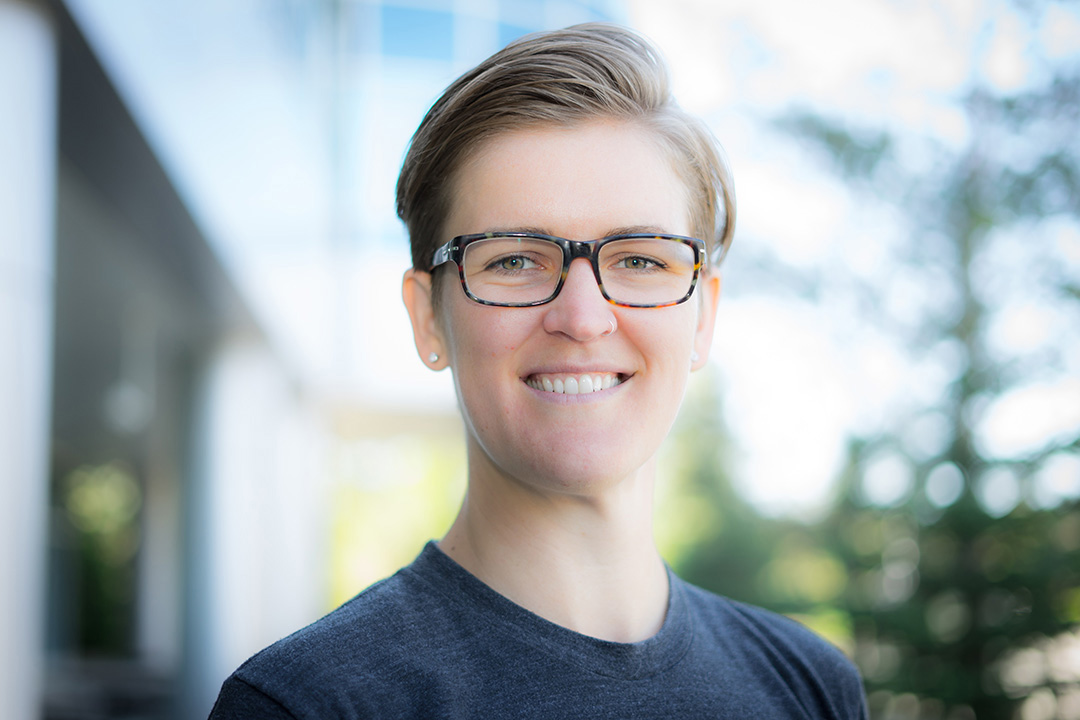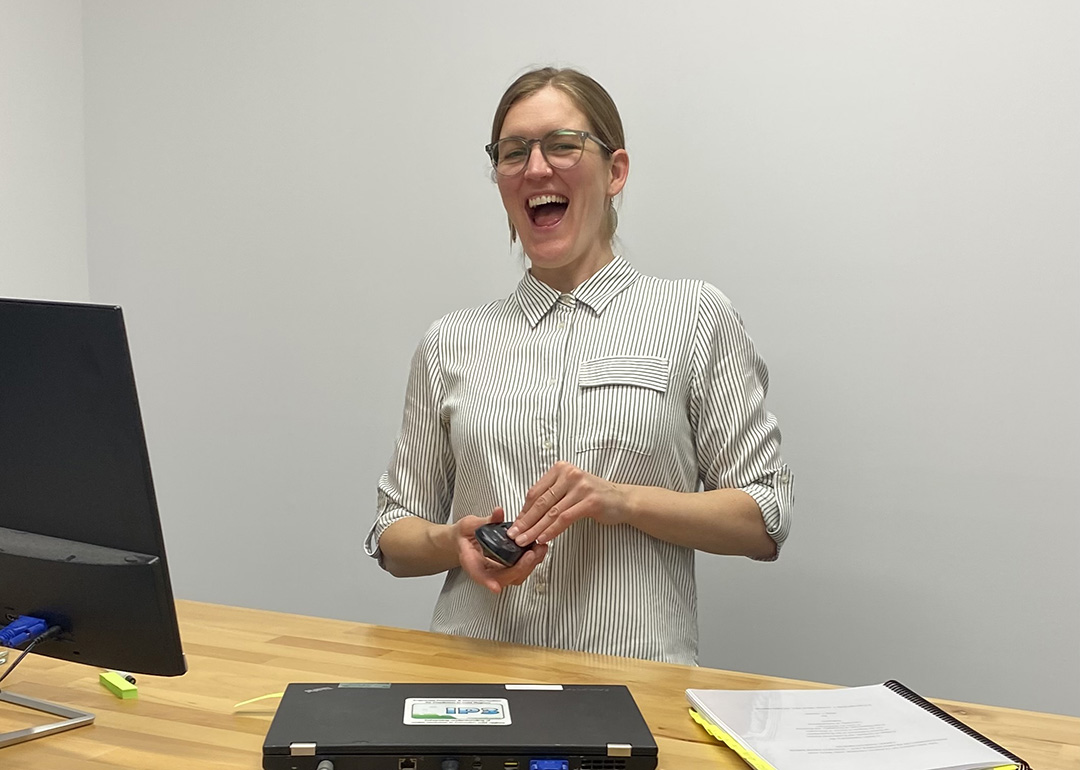
Curious by nature: How asking questions led Holly Annand to pursue a PhD at USask
Dr. Holly Annand (PhD) says she’s always been a curious person. Growing up, she was encouraged to ask questions and try different things. And it was this same curiosity that led her to pursue a PhD in hydrology and water resources science at the University of Saskatchewan (USask).
By Ashleigh MatternWorking in precision agriculture after finishing an undergraduate and master’s degree in agricultural engineering, Annand found the questions she was confronted with soon began to move beyond the scale of an individual farm or field.
“We’d be working to develop drainage plans one field at a time,” Annand said, “but the next level of questions started to come from the conservation districts: How do we move up to a connected network of fields and how we can better design drainage plans? ... What are the cumulative impacts of drainage projects?”
She found there weren’t a lot of answers at this level of questioning, so she went back to the network of people she’d met through her agricultural engineering degree and learned about the Global Institute for Water Security (GIWS) at USask, and the Centre for Hydrology and Global Water Futures (GWF).
“I thought, this is how we can get some answers,” she said.
Thus began her journey as a PhD student. Her supervisors were Dr. John Pomeroy (PhD), director of the Global Water Futures program and the USask Centre for Hydrology, and Dr. Howard Wheater (PhD), founding director of GIWS.
Her thesis focused on hydrological modelling of potential changes in wetland coverage on the Prairies. What would it look like if there were restoration to historical levels or, on the other hand, drainage to further loss?
This research has directly impacted the work she’s currently doing as a water resources engineer with Associated Engineering, where she’s evaluating potential wetland policy options and what the implications might be.
The topic of agriculture land drainage hits close to home for the farming community.
“It can be a heated topic but my goal with my work is to be someone that understands both sides and can communicate that well,” Annand said.

Annand is from Melfort, Sask., and while she didn’t grow up on a farm, she said her entire extended family are farmers and her siblings run an agricultural consulting business.
As a child, she said she was drawn to maths and science in school and was encouraged by strong women in her family to pursue her interests. At university, she eventually found her way to USask’s College of Engineering, and once there, she found many people who encouraged her to continue down that path.
She also found strong female mentorship from the GIWS community throughout her PhD studies, and said finding this supportive community was important for her, especially studying in areas where women are underrepresented.
“I found it helpful to find a network of people that shared that experience and the Women and Water Lecture Series grew out of that,” she said.
The lecture series was started by Dr. Corrine Schuster-Wallace (PhD), associate professor in the Department of Geography and Planning. Annand said her role was to help find ways to make the lecture series bigger and to encourage networking between young professionals and potential mentors.
“It felt like a natural thing I wanted to be involved with,” she said.
Annand said an important part of her PhD journey was getting involved in extracurricular activities like lecture series as well as the GWF Young Professionals group, even if it was at the expense of publishing more research.
“There are a lot of soft skills and leadership opportunities that you can take advantage of through the PhD to build your network and make it a more enjoyable process,” she said. “The publications and the rest will come later.”
Annand successfully defended her thesis on April 25. She’s currently living in Kingston, Ont., with her fiancée Claire Meadows, who is the head coach of the women’s basketball team at Queen’s University.

